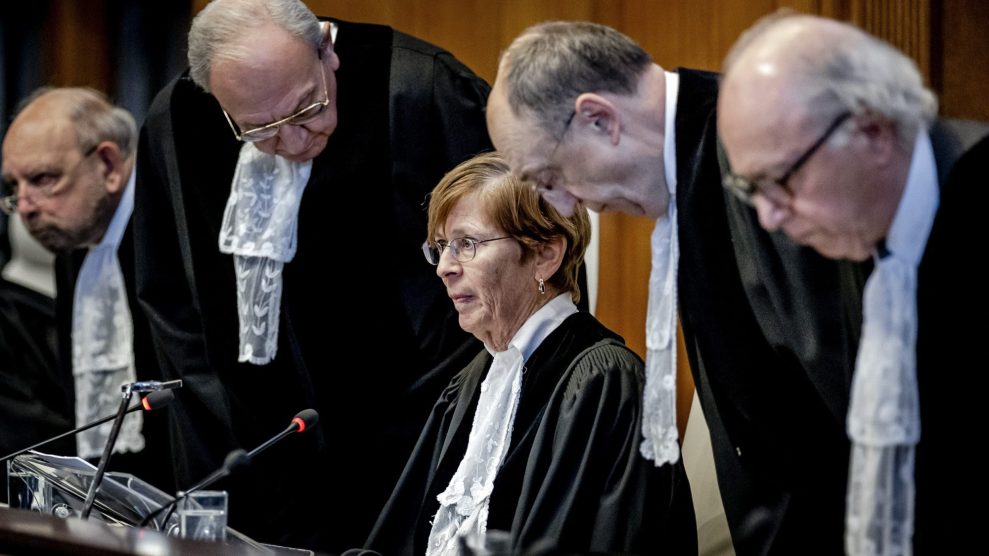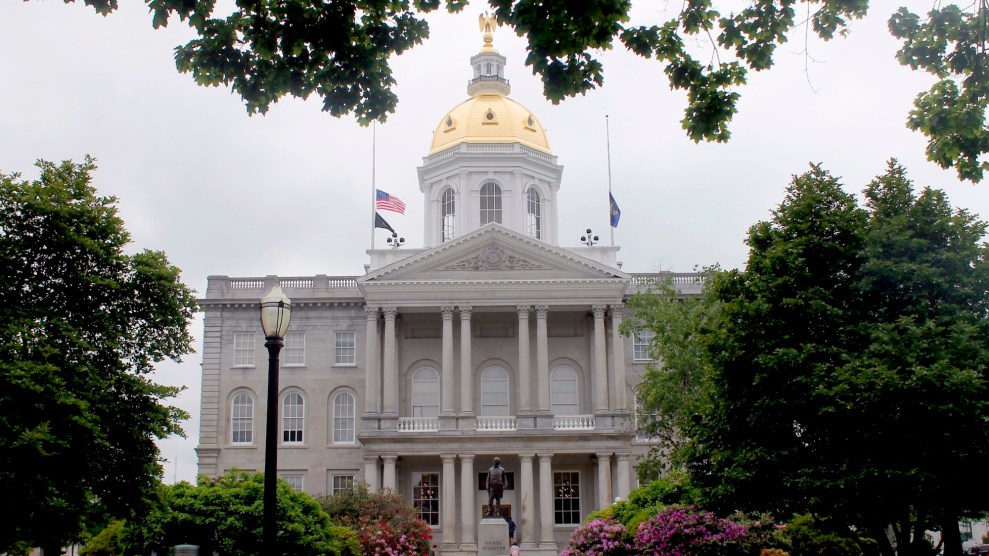
Judges at the International Court of Justice in the Hague ruled Friday that Israel must immediately work to prevent genocide in Gaza, but stopped short of calling for a ceasefire as requested by South Africa last month.Remko De Waal/ANP via ZUMA
The United Nations’ top court ruled Friday that a case brought by South Africa alleging Israel is committing genocide in Gaza will go forward. While the legal battle will play out for years, the court said Israel must take steps now to prevent genocide and get more humanitarian aid into Gaza.
The order from the International Court of Justice in the Hague stops short of the ceasefire South Africa requested when it filed the case last month. Still, it does acknowledge “a large number of deaths and injuries [to Palestinians], as well as the massive destruction of homes, the forcible displacement of the vast majority of the population, and extensive damage to civilian infrastructure.” Indeed, as my colleagues and I have reported, the toll of the war has been staggering for Palestinians: more than 26,000 have been killed, according to the latest numbers from the Gaza Health Ministry.
By early November, Israel had deployed more than 25,000 tons of explosives on Gaza, the equivalent of two nuclear bombs.
Yousef Hammash has watched it all unfold, sending out audio clips when internet access is available. This is his account. pic.twitter.com/1crTfpKxb9
— Mother Jones (@MotherJones) December 19, 2023
The UN judges also pointed to several statements by top Israeli officials that helped establish the plausibility of the case, including a comment by Defense Minister Yoav Gallant in which he pledged to “eliminate everything.”
The court order outlines steps Israel must take, including preventing the mass killing of Palestinians, stopping incitement of genocide, allowing for the provision of humanitarian assistance, and the “preservation of evidence” related to genocide claims. The judges also demanded Israel submit a report to the court in a month detailing the measures it has taken in response to the order, though South Africa had originally requested such a report be produced within a week of the court’s ruling. Fifteen of the 17 UN judges voted to support all of those measures; Justice Julia Sebutinde, of Uganda, voted against all of them, and former Israeli Supreme Court President Aharon Barak—who the country appointed as an ad hoc judge earlier this month—voted against all but two (those requiring more humanitarian aid and the preventing incitement of genocide).
The order also acknowledges that the judges are “gravely concerned about the fate of the [Israeli] hostages abducted” by Hamas on Oct. 7, and “calls for their immediate and unconditional release.”
The @CIJ_ICJ on Friday declared that Palestinians had a right to be protected from acts of genocide, calling on Israel to “take all measures within its power” to prevent such actions and allow the entry of desperately needed humanitarian aid into the war-shattered enclave pic.twitter.com/W0tsSPKjw9
— UN News (@UN_News_Centre) January 26, 2024
Palestinian Foreign Affairs Minister Riyad al-Maliki said the judges “ruled in favor of humanity and international law.”
Israeli Prime Minister Benjamin Netanyahu slammed the genocide accusations as “false” and “outrageous” in a statement, characterizing the country’s actions in Gaza as self-defense against Hamas, and pledging to limit harm to Palestinian civilians. South Africa, on the other hand, called the ruling “a decisive victory for the international rule of law and a significant milestone in the search for justice for the Palestinian people.”
Experts hailed the court order as significant, but cautioned that it could be years before the court issues a ruling on the genocide allegations against Israel—and that, in the meantime, lawmakers must act to end the suffering of Palestinians.
Raz Segal, a genocide scholar at Stockton University, told “Democracy Now” that the ruling is “unprecedented” and signals “the end of Israeli impunity in the international legal system.” And Palestinian human rights lawyer Diana Buttu told host Amy Goodman that “it’s now up to the world to make sure that this court ruling is actually enacted.”














